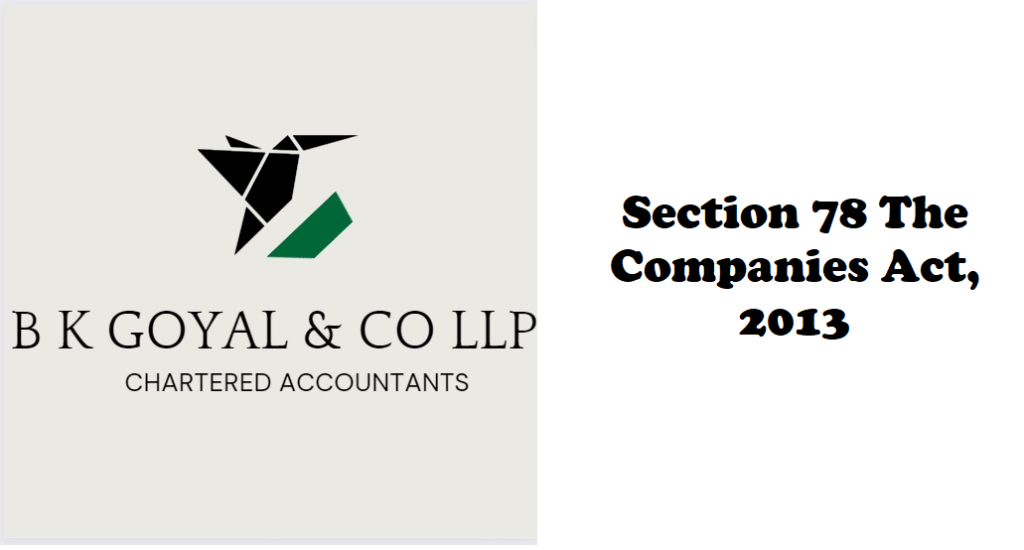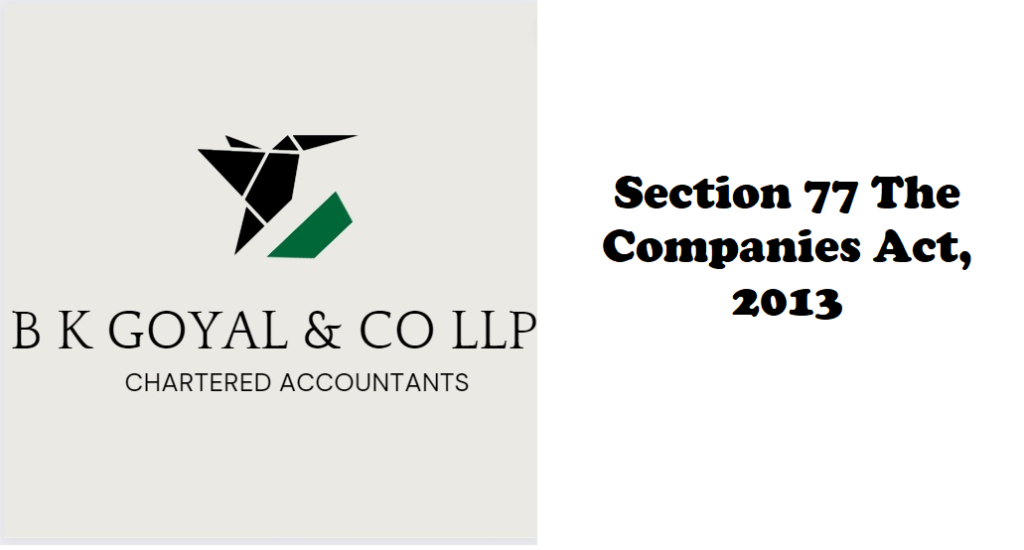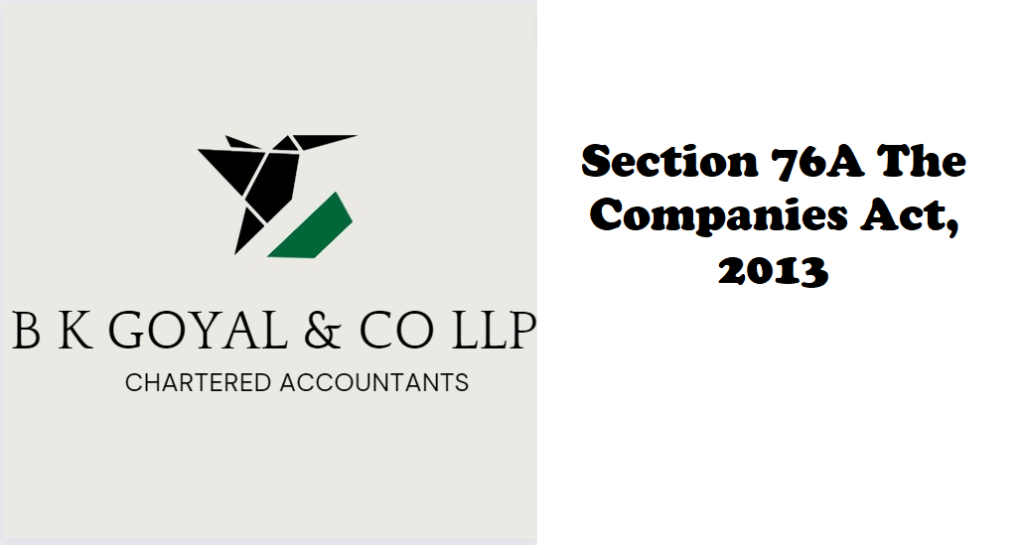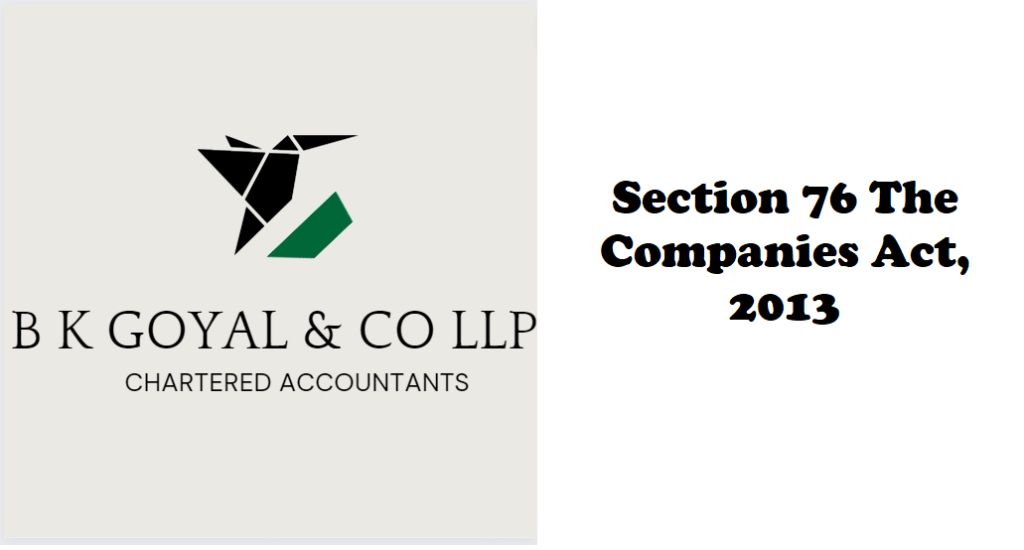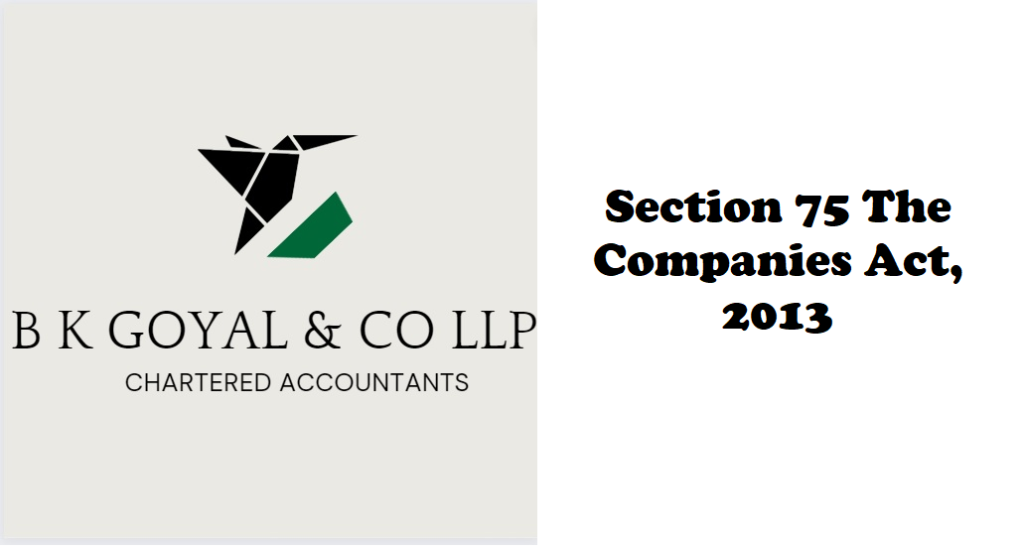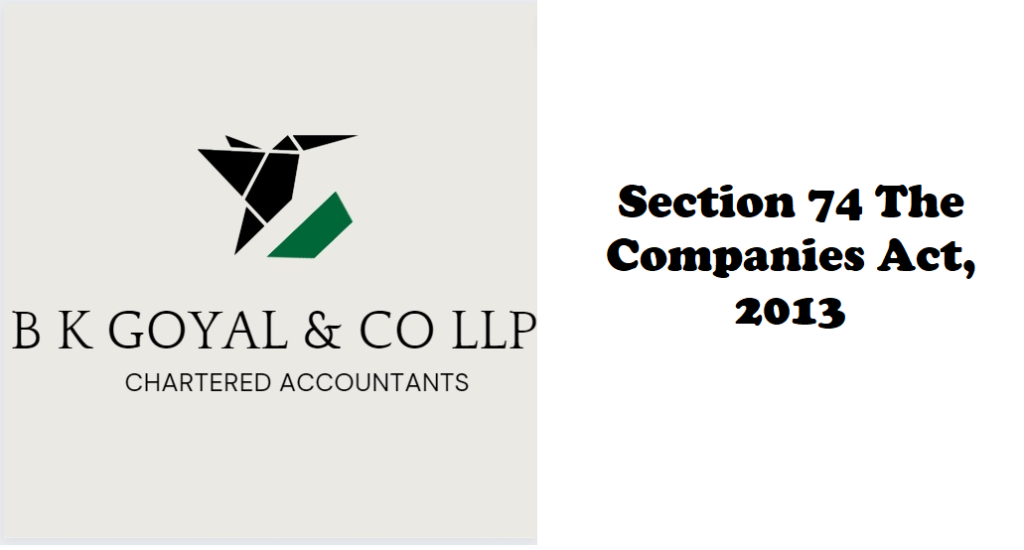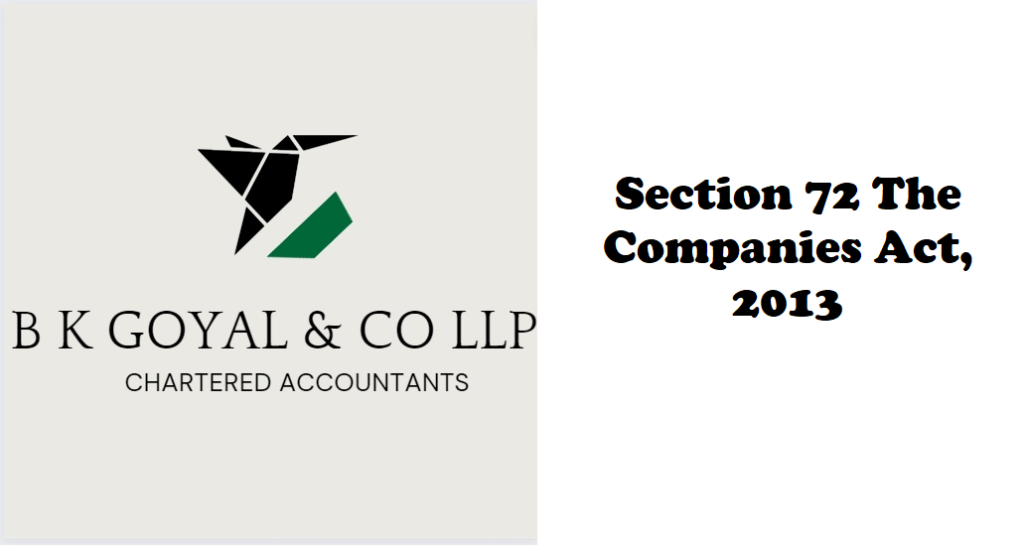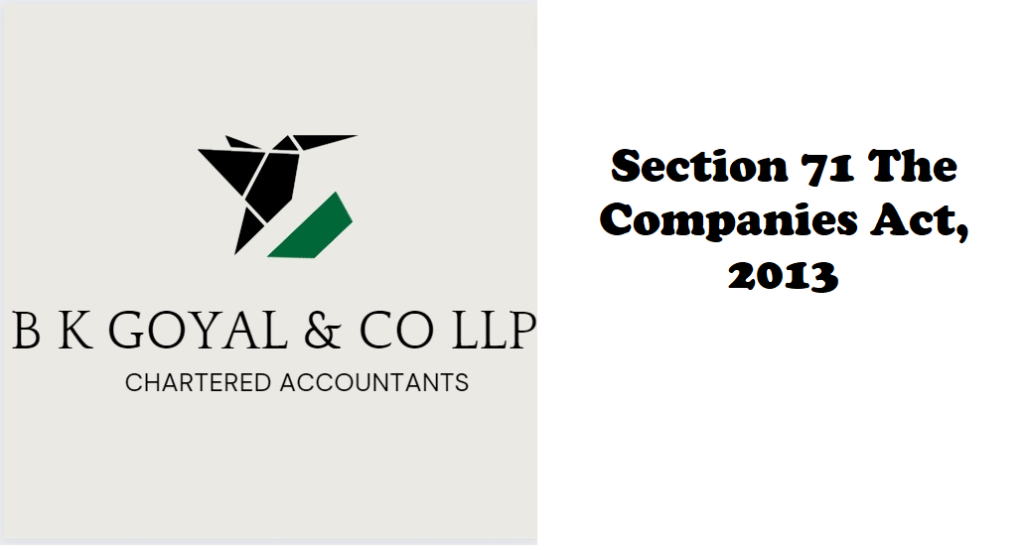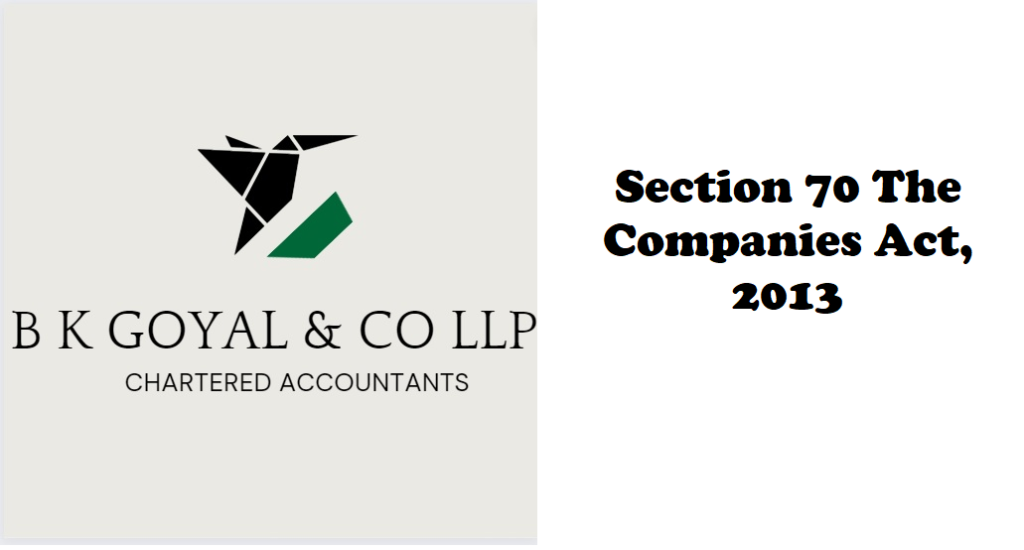Duty to Register Charges, etc Charge: ‘charge’ means an interest or lien created on the property or assets of a company or any of its undertakings or both as security and includes a mortgage Section 77 of the Companies Act, 2013 outlines the rules for registering charges created by companies on their property or assets, whether in India or abroad. Here’s a simplified explanation: Duty to Register Charges: When a company creates a charge on its property or assets, whether in India or abroad, it must register the details of the charge within 30 days of its creation. This registration includes the company’s and the charge-holder’s information, along with any related documents. There is a fee for this registration. Exception: In some cases, the registration can be allowed after the initial 30-day period, but with additional fees. The specific timeframes and fees depend on when the charge was created. Important: If the registration isn’t done within the specified timeframes, it can still be done later, but with even more additional fees. Effect of Registration: Once a charge is registered, the Registrar will provide a certificate of registration to the company and, if applicable, to the person in whose favor the charge was created. Legal Importance: A charge created by a company must be registered. If it’s not registered, it won’t be considered valid by the liquidator (a person appointed to handle the company’s assets during insolvency) or other creditors. Registration is a crucial step to establish the charge’s legality. Protection of Existing Rights: This registration process doesn’t affect any rights or agreements related to the charge that were established before registration. Exemptions: Some charges may be exempt from these rules, but the details of these exemptions need to be determined in consultation with the Reserve Bank of India. In summary, this section of the Companies Act emphasizes the importance of registering charges created by companies to ensure their legal validity and provides specific rules and timeframes for this registration. Complete Text of section 77 of companies act 2013 (1) It shall be the duty of every company creating a charge within or outside India, on its property or assets or any of its undertakings, whether tangible or otherwise, and situated in or outside India, to register the particulars of the charge signed by the company and the charge-holder together with the instruments, if any, creating such charge in such form, on payment of such fees and in such manner as may be prescribed, with the Registrar within thirty days of its creation: 5,[3[Provided that the Registrar may, on an application by the company, allow such registration to be made (a) in case of charges created before the commencement of the Companies (Amendment) Ordinance, 4[2019], within a period of three hundred days of such creation; or (b) in case of charges created on or after the commencement of the Companies (Amendment) Ordinance, 4[2019], within a period of sixty days of such creation, on payment of such additional fees as may be prescribed: Provided further that if the registration is not made within the period specified (a) in clause (a) to the first proviso, the registration of the charge shall be made within six months from the date of commencement of the Companies (Amendment) Ordinance, 4[2019], on payment of such additional fees as may be prescribed and different fees may be prescribed for different classes of companies; (b) in clause (b) to the first proviso, the Registrar may, on an application, allow such registration to be made within a further period of sixty days after payment of such advalorem fees as may be prescribed.]] Provided also that any subsequent registration of a charge shall not prejudice any right acquired in respect of any property before the charge is actually registered. 2[Provided also that this section shall not apply to such charges as may be prescribed in consultation with the Reserve Bank of India.] (2) Where a charge is registered with the Registrar under sub-section (1), he shall issue a certificate of registration of such charge in such form and in such manner as may be prescribed to the company and, as the case may be, to the person in whose favor the charge is created. (3) Notwithstanding anything contained in any other law for the time being in force, no charge created by a company shall be taken into account by the liquidator 1[“appointed under this Act or the Insolvency and Bankruptcy Code, 2016, as the case may be,] or any other creditor unless it is duly registered under sub-section (1) and a certificate of registration of such charge is given by the Registrar under sub-section (2). (4) Nothing in sub-section (3) shall prejudice any contract or obligation for the repayment of the money secured by a charge. Note : * Scheme for relaxation of time for filing forms related to creation or modification of charges under the Companies Act, 2013 Amendment 1. (a) Inserted byInsolvency and Bankruptcy Code, 2016, dated. 28th May, 2016. (b) Effective from 15th November, 2016 by The MCA Notification No. F.O. 3453(E) enforcing the related sections of Insolvency and Bankruptcy Code, 2016 2. Inserted by The Companies (Amendment)Act,2017 – Amendment Effective from 7th May 2018 3. Substituted by the Companies (Amendment) Ordinance,2018 dated 02.11.2018 In section 77 of the principal Act, in sub-section (1), for the first and second provisos, Provided that the Registrar may, on an application by the company, allow such registration to be made within a period of three hundred days of such creation on payment of such additional fees as may be prescribed: Provided further that if registration is not made within a period of three hundred days of such creation, the company shall seek extension of time in accordance with section 87: the following provisos shall be substituted, namely:- “Provided that the Registrar may, on an application by the company, allow such registration to be made (a) in case of charges created before the commencement of the Companies (Amendment) Ordinance, 2018, within a period of three hundred days of such creation; or (b) in case of charges created on or after the commencement of the Companies (Amendment) Ordinance, 2018, within a period of sixty days of such creation, on payment of such additional fees as may be prescribed: Provided further that if the registration is not made within the period specified (a) in clause (a) to the first proviso, the registration of the charge shall be made within six months from the date of commencement of the
